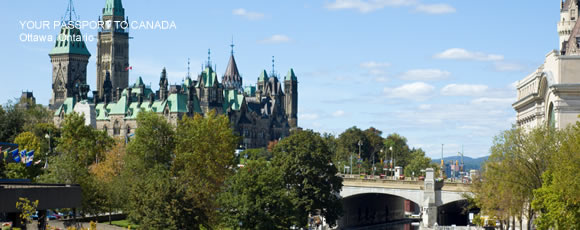
Refugee Hearings,
Immigration Consultants in Montreal, Quebec, Canada
The Canadian Immigration Council is based in Montreal, Quebec, Canada and is one of the oldest and most reputable Canadian immigration consulting firms that specialize in Canadian immigration law. We focus on all areas of immigration law including work permit applications, permanent resident applications, student visa applications, landed immigrant applications and Canadian citizenship applications. Our practice also provides a full range of immigration litigation services through our network of immigration professionals including regulated immigration consultants, lawyers, business advisors, paralegals, accountants as well as other specialists in a variety of fields.
The Canadian Immigration Council has been voted #1 immigration Consulting firm by the prestigious Leger & Leger group for three consecutive years for helping prospective immigrants worldwide to achieve their dreams of immigrating to Canada and for providing outstanding immigration services.
Canada Immigration Hearings
Apart from appeals, the types of litigation that will sometimes arise in the immigration context may be described as hearings. These are held before the Immigration and Refugee Board, which is an administrative tribunal, or in some cases interviews may be held before immigration officers. Persons engaged in the hearing process will have an opportunity to testify before a decision-maker and may be represented by a lawyer or certified immigration consultant.
Refugee Hearings
Refugees are persons who fear for their lives or safety in their home country, where the authorities of their home country are unable or unwilling to provide them with effective protection. Canada has a long-standing humanitarian tradition of providing surrogate protection to refugees. Refugee status may be applied for by people entering Canada, for example at an airport, or by people who are already in Canada. Successful refugee applicants may apply for permanent residence in Canada.
A person who claims refugee protection in Canada may present their case on one or more of three bases for refugee protection: (1) that they face a risk of persecution in their home country for reasons of their race, religion, nationality, membership in a particular social group, or political opinion, (2) that they face a risk of torture in their home country, (3) that they face a risk to their life or of cruel and unusual treatment or punishment in their home country.
The process of claiming refugee status in Canada begins by making a refugee claim either upon entry into Canada or at a later date after already entering Canada. Claimants will be provided with an opportunity to attend a hearing at the Refugee Protection Division of the Immigration and Refugee Board where they will personally present their case to a Board Member who will decide whether or not to grant them refugee protection.
A refugee claimant who is found to be in need of refugee protection in Canada may apply for permanent residence so they can remain in Canada permanently. If a refugee claim is refused an appeal may be made to the Federal Court.
Process for Claiming Refugee Protection
In order to claim refugee protection, one must first notify an immigration officer. This can be done at any port of entry to Canada, at a Canada Immigration Centre or at a Canada Border Services Agency office. Anyone who is not a Canadian citizen may claim refugee protection. The immigration officer will interview the refugee claimant. If the officer determines that the claim is eligible, the officer will send the claim to the Refugee Protection Division of the Immigration and Refugee Board of Canada. If a decision is not made by the officer within three working days, the claim will be automatically sent to the Immigration and Refugee Board for consideration.
The refugee claimant has the burden of proof. The claimant must show that their claim is eligible for refugee protection. A claim is ineligible if:
- the claimant has previously been refused refugee protection in Canada
- the claimant has previously been granted refugee protection in Canada or another country
- the claimant came to Canada through or from a designated safe third country where they could have claimed refugee protection, or
- the claimant is a security risk, has committed a serious crime, has violated human or international rights or has been involved in organized crime.
If the claim is eligible and it is referred to the Immigration and Refugee Board, the claimant will be given information regarding the refugee hearing process. This information will include a Personal Information Form that must be completed within 28 days.
Reviewal and Hearing Procedure
Once the Personal Information Form is received, the Immigration and Refugee Board reviews each claim in order to determine the most efficient and fairest way in order to reach a decision. The Immigration and Refugee Board considers several factors including the country the claim is made against as well as the nature of the claim. The claim is then assigned to one of three possible ways in order to make a decision:
- Fast-track expedited process: for claims from certain countries or for certain claim types. In this process, a refugee protection officer from the Immigration and Refugee Board interviews the claimant. The officer then makes a recommendation regarding the claim. If the recommendation is favourable, the claim is then forwarded to a decision-maker who will decide if it should be accepted without a hearing. A full hearing is then held if the claimant is not granted refugee protection through this expedited process.
- Fast-track hearing: for claims that appear to be simple because they can be decided on the basis of one or two issues. A refugee protection officer does not attend this type of hearing.
- Full hearing: for claims that may be complex and involve more than two issues. Full hearings follow the Immigration and Refugee Board tribunal process. A refugee protection officer may assist the member in order to ensure that all relevant evidence is presented. Representatives from the United Nations High Commissioner for Refugees may observe the hearing.
All three processes are non-adversarial. Therefore, the member or the refugee protection officer will ask the claimant questions about the facts that support the claim to establish the truth of the story.

About The Canadian Immigration Council
Richard Serour is the President and CEO of the Canadian Immigration Council. He is recognized as one of the leading immigration advocates and professionals in Canada and has devoted his life to working in order to help people around the world wishing to immigrate to Canada. Being an experienced immigration consultant, Mr. Serour has helped thousands of families fulfil their dream of coming to Canada and become permanent residents to eventually turn into proud Canadian citizens.
With an experienced staff and a full network of paralegals, consultants, lawyers and other support specialists, the Canadian Immigration Council has turned many people's dreams into reality. Canada's Prime Minister Stephen Harper said it best: "Canada is the place where people want to come and stay, to learn, to pursue opportunities, to raise children, to enjoy natural beauty, to open new frontiers, to set the standard for the world for a high quality of life; a Canada that is a leader and example to the world."
We invite you to take advantage of our free online assessment today.
Although our assessment is free, the opportunity is priceless.
We wish you and your family success and happiness.




